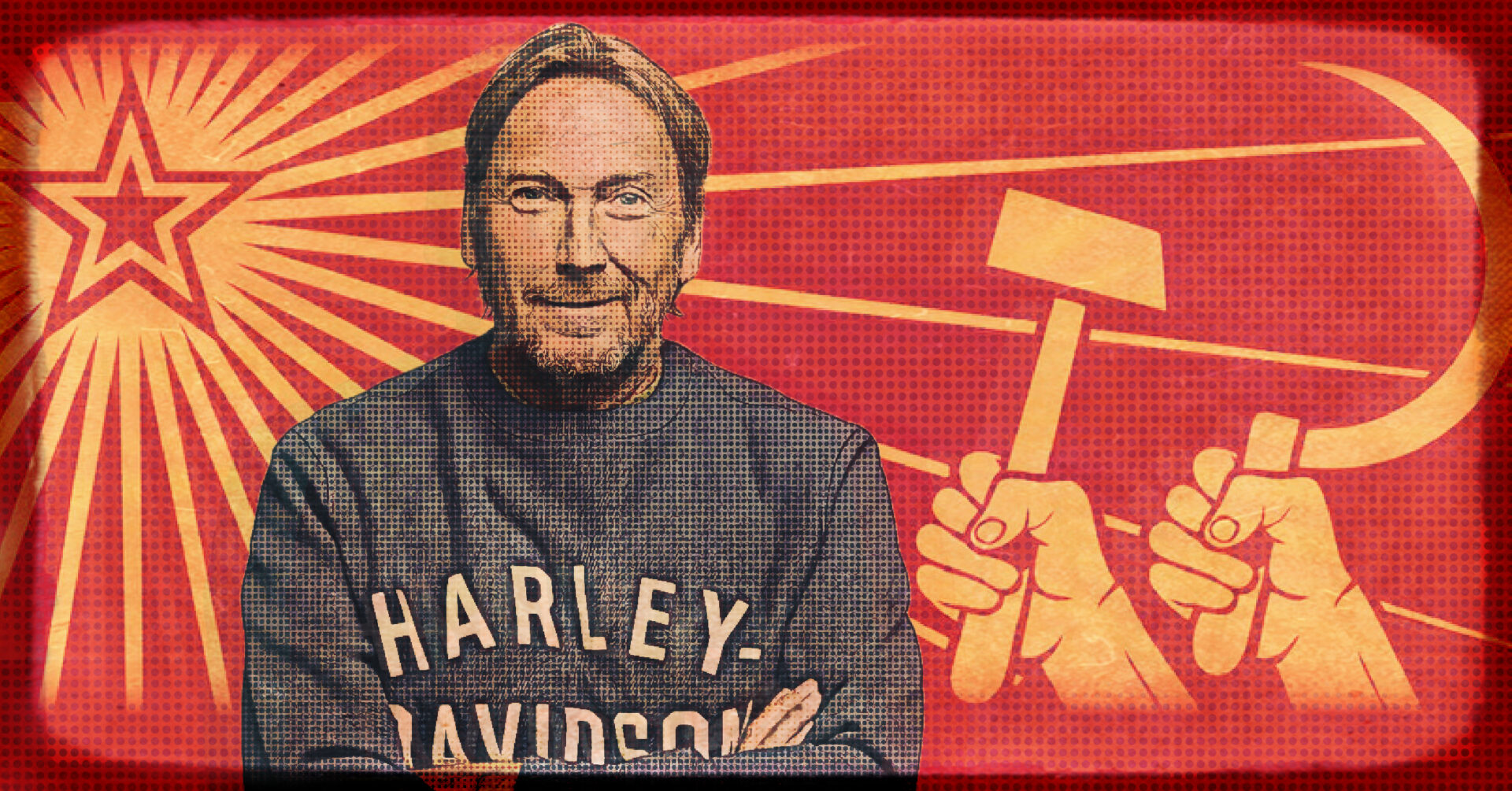The Silent Genocide of the American Francophones

Image source: New Orleans official website.
1,399 words
Celebrated French explorer Jacque Cartier founded New France in 1534 when he erected a cross on the shores of what is known today as Quebec City. Thus begins the 269-year story of the French colonization of North America. During those years, the French colonized Canada and the American Midwest along the Mississippi River and the Ohio Basin, a territory known as Louisiana, so named by explorer Sieur de La Salle in honor of his King, Louis XIV. French colonists founded the cities of Quebec, Montreal, New Orleans, Saint Louis (named after sainted crusader king Louis IX), and Detroit, all of which went on to become major economic, cultural, and industrial centers in subsequent centuries.
The reasons why the French failed to win this contest for dominance in North America against rival Britain are too numerous to describe for the purposes of this essay, but it is interesting to ponder what would have happened if they had. France took a very different approach to colonization. Instead of encouraging immigration from Europe, they forged a more cooperative relationship with the natives, employing them as sort of independent contractors and sometimes mercenaries. Had France become the dominant power, America today might be a country with majority-white urban commercial centers surrounded by majority-Native American countryside, and everyone would be speaking French.
France lost its North American territories after the Seven Year’s War. Britain got Canada, while Spain got the Mississippi basin. Napoleon forced Spain to give the Louisiana territories back, but in 1803 he sold it to the United States to pay off his debts. Understanding the world-changing historical magnitude of this blunder, Napoleon’s brothers begged him not to do this, but their pleas fell on deaf ears. Thus ends the story of France’s colonization of North America.
From New Orleans to Detroit, there were only about 50,000 French living in the territory at the time of the Louisiana Purchase. Naturally, they didn’t all stop speaking French overnight. How long did the descendants of the French colonists continue speaking French after the Louisiana Purchase? Everyone knows that they did for a time. The French cowboy from Louisiana turns up in Westerns occasionally. But when did they stop speaking French? Did they ever stop?
There were communities throughout the former Louisiana territory, usually out in the boonies, where people continued speaking French well into the twentieth century. There’s an area in the middle of nowhere in Missouri called Old Mines, where as recently as the Second World War there were still several thousand people who spoke French as their first language. Not just any French, though. It became known as Missouri French, or “Paw-Paw French,” a dialect that was distinct from both standard French and Louisiana French. It had its own unique phonetic quirks. Old Mines was cut off from the rest of the world to the extent that it developed what became known as Missouri French. With post-war highway expansion and mass communication, places such as Old Mines are today not as remote as they used to be, and now the dialect is on the verge of extinction. While there are still a handful of native speakers of it, and there are some people working to keep it alive, it will likely go extinct in our lifetimes.

The most famous example of this is the case of Louisiana, where the state maintained a significant French-speaking presence well into the modern era. A study conducted in 1968 estimated that there were still a million Louisiana residents who spoke French as their first language.
When I was a wee baby Trav, that was one snappy bit of trivia for an elementary school kid to know. I knew that in America people speak English, but that the one exception is Louisiana, where there are these people called Cajuns who have been speaking French since the time of Napoleon. I had heard stories about how there were parts of California full of illegal immigrants where Spanish was the main language, and that some cities had areas where Chinese was mostly spoken, but the grandkids of these immigrants likely wouldn’t be able to speak a word of either. Louisiana was a quirky exception to this rule, where you could find native-born Americans whose first language was something other than English. I heard that in the state there were French-language radio stations all across the dial.
Needless to say, the Louisiana French are no longer the exception. There are now pockets all over the United States where something other than English is the dominant language. As a result, the Louisiana French no longer receive the attention they used to. Unless serious measures are taken soon, Louisiana French will likely be a dead language by the end of this century. From there being a million Louisiana Francophone in 1968, a 2023 estimate by the Louisiana newspaper The Advocate estimated that the current population of Francophones stands at only 120,000.

This is a sort of genocide. No one was put into a gas chamber. No one was programmed. Much of this is the result of assimilation. Many in Louisiana saw French as a low-status language, the way we might view Spanish today, and thus learned English instead to avoid the stigma. My own grandparents spoke Louisiana French as their first language, and neither my dad nor any of his siblings can speak a word of it. Their family had moved away from Louisiana, and there was little use for learning French in their new Anglophone home.

You can buy Greg Johnson’s In Defense of Prejudice here
Saying that French is dying out mostly due to assimilation is like telling a Native American that much of the “genocide” perpetrated against them was actually intermarriage, however. If a people ceases to exist as a distinct group, it is a tragedy no matter how it occurred. When it comes to immigrants, assimilation is good, but in the case of the Louisiana French, I think there are reasons why they should be considered as an “indigenous people.”
Like Native Americans, the French can rightfully claim that they were in Louisiana first, and should feel no obligation to assimilate to newcomers in their own homeland. Also like the Native Americans, the French did not democratically choose to become part of the United States. Texas at least had a legislature that decided to join the United States, but the inhabitants of the Louisiana Territory were never consulted when Jefferson and Napoleon hashed out their smokey backroom deal.
I think that the United States should feel an obligation to guarantee that the culture they inherited through the Louisiana Purchase does not vanish from existence. The federal government gave the Native American tribes reservations in order to safeguard them against total extinction. The Louisiana Francophones are thus well within their rights to demand their own semi-autonomous microstate where their centuries old-culture — the culture that gave the world gumbo and Confederate General P. G. T. Beauregard — does not disappear into history. It could be a joint operation between France and America — and possibly Britain, too, as Cajuns are the product of a British ethnic-cleansing operation that would be considered a war crime today.
It wouldn’t even need to be a very big state, but Louisiana French would be the official language of its government and school would be taught in French. The 120,000 remaining native French speakers would then be highly encouraged to move there and given cushy jobs as “consultants” for whatever linguists have to be brought in for the project. From there, those people’s extended families would be able to gain citizenship. From there, anyone who could trace their ancestry to French territory at the time of the Louisiana Purchase and who wanted to reclaim their French identity could apply for citizenship, as could select diaspora Francophones who might be interested in participating. Priority would be given to married couples who intend to have children who would then be educated in French. Such a state would not only preserve the existence of an indigenous American culture and its unique American dialect, it would probably attract a good amount of tourism — especially if they packed the place with casinos, Cajun restaurants, and jazz bars.
120,000 is a decent number of people to build something upon, and if action is taken now, the torch that has been handed down for generations since the time of Jacque Cartier can remain lit.



